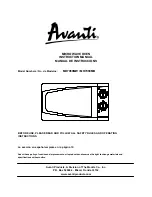
the manufacturer will not be liable in the event of improper or incorrect use or if repairs are carried out
by unauthorized third parties.
17
GEnERAl InFoRMAtIon AnD tIps on VAcUUM pAcKInG
Vacuum packing can be used to keep vegetables,
meat, etc. longer. Vacuum packed food does not
take on odors and it is well protected against
bacteria, mold, etc.
Vacuum packing can also be used to preserve tea
or dried foods purchased on sale, for example.
Please use only bags and films that are suitable
for vacuum packing, or use the container included
with your vacuum packing machine. Other bags
can melt as a result of high temperatures and
damage the appliance! Other containers could
be destroyed by the high pressure, resulting in
injury.
The vacuum bags and films are made of a special
patented five-ply plastic. This material is ideal
for preserving foods.
The bags included with your vacuum packing
machine are washable and can be reused; you
can even wash the bags in the dishwasher. For
detailed information, please refer to the chapter
“Cleaning and care”.
If you need foods more frequently, we recommend
using the container included with your vacuum
packing machine. But it can also be used to
keep lettuce fresh longer (in this case, place a
paper towel in the container before putting in
the lettuce and vacuum packing).
The bags are ideal for vacuum packing meat or
fish; complete meals can also be packaged in
portions so that they keep longer.
Please note that if the food to be vacuum packed
is moist, it should be partially frozen first, since
otherwise the liquid can run out during vacuum
packing, which would prevent a vacuum from
forming.
Also, make sure that no liquid, fat, etc. is in
the vicinity of the bag’s seal, since this will also
prevent a vacuum from forming.
By the way, you can vacuum seal other things than
just food. Old photographs, stamps, documents
or silverware can be vacuum packed to protect it
from damaging effects of the environment.
Bags or containers with vacuum packed food can
be heated directly in hot water or the microwave.
In this case, punch a small hole in the bag so
that the pressure can escape. To heat foods
in the container, the lid first has to be opened
briefly. We recommend that you do not reuse
bags that have been used for heating foods.
Meat, for example sauerbraten, can be marinated
much more quickly in the vacuum container,
since the effect of the vacuum causes the
marinade to penetrate the meat more quickly
and more thoroughly.
Please note, however, that vacuum packed foods
also have to be stored properly. Perishable goods,
for example, have to be cooled even if they are
vacuum packed.
Please do not vacuum pack garlic or mushrooms.
Vacuum packing of these foods causes a chemical
reaction, which can result in spoilage.
pREpARInG thE ApplIAncE FoR opERAtIon
1. Remove all packaging material and any
transport safety devices.
2. Clean all components with a damp cloth,
as described in the chapter “Cleaning and
care” on page 19.
3. Place the appliance on a suitable level
surface.
4. Make sure that there is enough space in
front of the appliance for the bag to be
vacuum packed.
5. Connect the appliance via the power cord to
the power supply (AC, 230 V~, 50 Hz). The
indicator lamp lights up green, indicating
that the appliance is ready for operation.
20. Clean the appliance after every use (see
chapter on Cleaning and Care, page 19).
21. Check the appliance, the plug and the power
cord regularly for wear or damage. In case
of damage to the power cord or other parts,
please send the appliance for inspection and
repair to our after sales service (for address,
see warranty terms, page 62). Unauthorized
repairs can result in serious risks to the user
and void the warranty.
















































